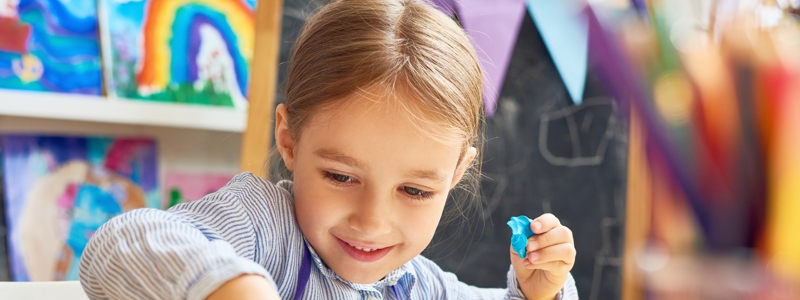With the school summer holidays just around the corner, there’s plenty of spare time for parents to try and fill. We know how tricky it can be to encourage your kids to take part in any sort of learning during the break, however, completely stopping education for six weeks can be detrimental. Not only can it impact on your child’s academic gains from the previous school term, these gains have never been so important with all the disruption they’ve already faced due to the pandemic. That’s why we’ve created the ultimate parents’ guide, full of fun and interesting educational activities for the summer break. Whether it’s raining, you’re planning a family day out or you want to spend the day outside, there’s plenty of ways to incorporate learning throughout the holidays.
Everyday Educational Activities
It can be a big ask to get your kids to take part in learning every day of the holidays. Instead, trying to gently encourage them to take part in just one small but enjoyable educational activity as often as possible will be hugely beneficial in the long run.
Reading
Reading can be a really enjoyable activity for any child and often doesn’t even feel like ‘active’ learning. With plenty of extra free time during the six-week break, encouraging your kids to read every day, even if it’s just for half an hour is key! Not only does it engage your child’s imagination but helps continue to develop literacy skills. It’s also a good idea to make sure your child is reading books that are interesting but also challenging for maximum benefits. If your child is perhaps a little reluctant to get reading, have a read of this useful blog post, which gives you 10 tips to help encourage reading.
Utilise Educational Apps
There’s inevitably going to be time during the summer holidays that your child is using technology more than usual. Try and make this screen time beneficial by downloading some educational apps that encourage learning without your child even realising it. Our useful blog post has some fantastic choices for all subject areas.
Encourage Free Writing
Encouraging your kids to ‘free’ write regularly will make sure they’re constantly improving throughout the summer break. Whether it’s writing a fictional story, a comic strip, a journal, a blog, a letter to someone they admire or lists of their favourite things, it’s important to remind them that writing freely can be a lot of fun. It also allows them to enjoy being creative without being graded.
Outdoor Activities
Just because the sun is shining doesn’t mean that your kids can’t have fun outside and learn a thing or too at the same time!
Gardening
Gardening is an excellent activity that your children can get involved in, sure to keep them busy for a few months! We love the idea of starting a family vegetable garden from scratch or building up a small flower or plant patch. Ask your kids to research what they would like to grow, what they’ll need before planting and whether the seeds need to be in direct sunlight or not – this way they can start learning all about the science behind growing and nature in general. Having the responsibility of looking after their own garden and watching their seeds gradually grow throughout the summer is also a great way for them to learn through hands-on experience.
Make An Obstacle Course
Sometimes your kids just want to have fun and burn off energy, rather than sitting down to learn. A great way to keep their brains engaged when spending time outside is getting them to create an obstacle course in your back garden. Doing this will feel like great fun for them, however, in reality your kids will benefit from being creative and actively using problem-solving skills. You don’t need anything fancy to create a great obstacle course either- simple everyday objects such as balloons, chairs, masking tape and outdoor toys mixed with a few creative ideas can be a lot of fun.
Rainy Day Activities
There’s bound to be some rainy days during the summer holidays, and you don’t want the kids to get bored and just be slumped in front of the TV. Instead here’s a few ideas of things they can do that are a little more beneficial!
Playing Games
Whether your child is playing board games or educational video games, there’s so much out there that will help teach your child skills or test their knowledge. In fact, most games will require critical thinking and high concentration levels. Cards and board games such as Rummikub do wonders for number and counting skills, whereas games like Scrabble, Articulate and Boggle really put language and spelling to the test. Quiz games such as Trivial Pursuit can also be a great way to test your child’s general knowledge skills and even better- they probably won’t even realise they’re being tested!
Getting Involved In The Kitchen
There’s certainly a lot to be learnt in the kitchen, so if your kids enjoy cooking or baking, it’s a great idea to encourage them to spend a bit more time with you getting involved. Give them small responsibilities like measuring out ingredients, following and reading recipes aloud, writing out a shopping list, as well as understanding kitchen safety.
Educational Days Out
If you want to plan a few family days out during the six-week break, it is a great opportunity to choose a few places that will be fun but also educational too. Zoos, nature reserves and museums are excellent choices, and often they’ll have educational resources or activities specifically for children to complete throughout their visit. Beach days or a trip to a park can also be equally educational, especially if you take the time to find a few resources for them to engage with beforehand. This could be anything from beach safety, things to look out for in the area you’re visiting or just general history of wherever you’re going. Here’s a few of our favourites to consider:




